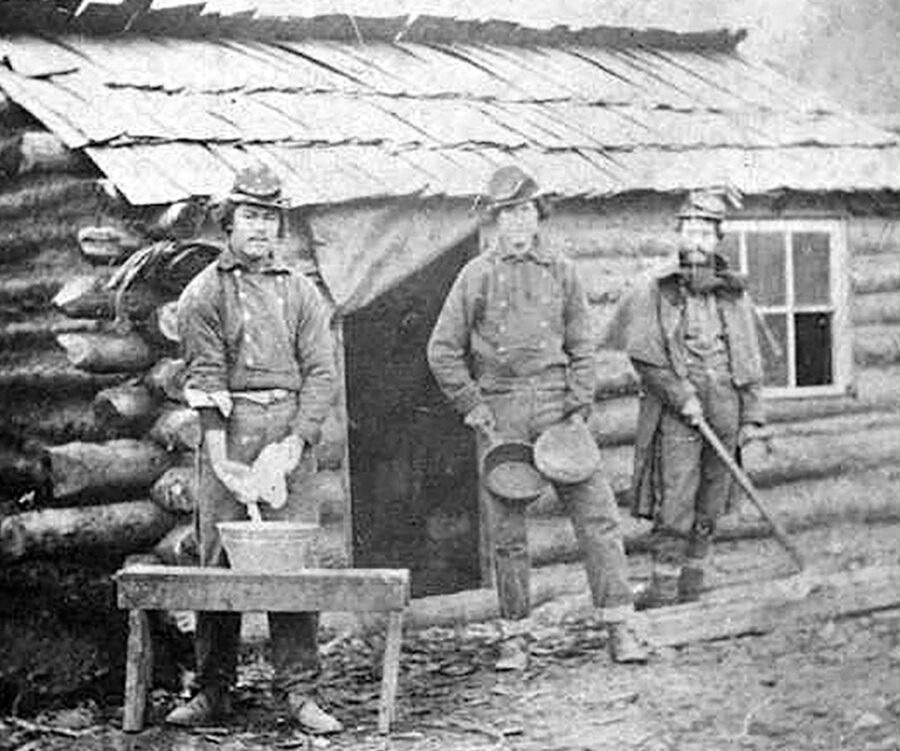George Henry Thomas: As True As Steel by Brian Steel Wills. University of Kansas Press, 2012. Cloth, ISBN: 0700618414. $39.95.
 While historians of the American Civil War have by no means ignored him, they have not lavished as much attention on George Henry Thomas as one might expect, considering his historical significance. Former Confederates’ Lost Cause animosity to Thomas’ continued loyalty to the United States despite his Virginia birth, the absence of a native loyal state to push his memory and interests, and lack of service in the more visible eastern theater have all probably contributed to this phenomenon. Moreover, Thomas holds an inherently less prominent place in the triumvirate of Federal captains, where he remains overshadowed by Ulysses S. Grant and William T. Sherman. However, Thomas’ own taciturn personality, so ably chronicled in Brian Wills’ George Henry Thomas: As True as Steel may very well be the best explanation for the smaller volume of scholarship on the “Rock of Chickamauga.”
While historians of the American Civil War have by no means ignored him, they have not lavished as much attention on George Henry Thomas as one might expect, considering his historical significance. Former Confederates’ Lost Cause animosity to Thomas’ continued loyalty to the United States despite his Virginia birth, the absence of a native loyal state to push his memory and interests, and lack of service in the more visible eastern theater have all probably contributed to this phenomenon. Moreover, Thomas holds an inherently less prominent place in the triumvirate of Federal captains, where he remains overshadowed by Ulysses S. Grant and William T. Sherman. However, Thomas’ own taciturn personality, so ably chronicled in Brian Wills’ George Henry Thomas: As True as Steel may very well be the best explanation for the smaller volume of scholarship on the “Rock of Chickamauga.”
While there may be no bookshelves of biographies already devoted to Thomas, he has received previous scholarly treatment, including a recent and credible biography by Christopher J. Einolf, Wills’ work now serves as the standard biographical study of Thomas. Wills focuses on Thomas’ disciplined, methodical, and conscientious personality, which explained both his personal relationships, his pivotal decision to stay loyal to the Union after Virginia’s secession, and both this military strengths and weaknesses. Wills admires and sympathizes with his subject, declaring at the end of his biography “that at the heart of the soldier and the man was the pulse of a patriot and a nature whose devotion to duty and his ideals made him ‘as true as steel’” (471). Nevertheless, the modern historian acknowledges that Thomas’ meticulous, judicious, and careful nature meant that “sure-footedness could devolve into something akin to plodding” (470).
Wills judiciously examines Thomas’ complex and at times fraught relationships with Grant and Sherman, including the famous episode when Thomas’ deliberate pace of action nearly led to his relief by Grant before the Battle of Nashville. Grant felt Thomas too passive in the face of John Bell Hood’s army, while Thomas felt he should not begin offensive operations until winter storms cleared and his logistical preparations reached fruition. Grant nearly relieved Thomas for the delay, but Thomas’ spectacularly successful attack during the Battle of Nashville saved his army command. Nevertheless, both Grant and Sherman always felt during and after the war that Thomas was slower than he should have been, although they both admired his talents and sense of duty. While Thomas remained stiffly proper and fastidious in his desire to never appear as if he was actively seeking external recognition, he felt perceived slights keenly, and his prickliness marred both his wartime and post-war relationships with his more famous counterparts.
Like every other Thomas biography, Wills could not utilize the large documentary collections of personal papers many Civil War biographers enjoy. He has drawn on the materials that do exist, however, which remain extensive enough for a solid scholarly treatment. Like many works of judicious history that correctly avoid revisionism for revisionism’s sake, Wills does not sharpen a large historiographical axe, although he does take issue with Einholf’s narrative of a stark transformation in Thomas’ views toward African-Americans. While Einholf sees a sudden change in Thomas’ racial views after the Battle of Nashville, Wills sees a more gradual change related in large part to Thomas’ evolving views of troops under his command. All in all, Wills has made a fine contribution to Civil War studies with this biography of a comparatively understudied but profoundly important Union general.
Wayne Wei-siang Hsiesh is an Assistant Professor of History at the United States Naval Academy and the author of West Pointers and the Civil War (2009).
